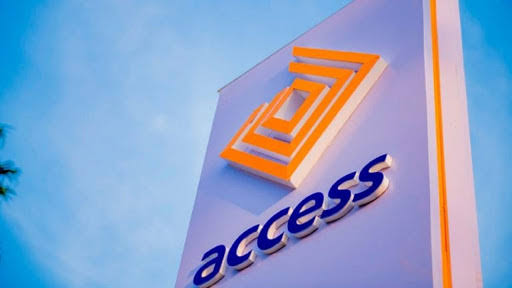The Federal High Court in Lagos has ordered Access Bank Plc to pay N7 million in damages to a customer, Farid Giwa, over the unlawful restriction of her bank account without a valid court order.
Justice Ayokunle Faji, who delivered the judgment on Monday, ruled that Access Bank violated Giwa’s fundamental human rights by placing a Post No Debit (PND) restriction on her account in the absence of judicial authorization. The court granted six of the reliefs sought by the applicant’s legal team, including declarations that her constitutional rights had been breached.
According to the ruling, the restriction was placed on Giwa’s Access Bank account—numbered 0054695391—on July 1, 2023, without any formal notice or legal justification. The bank claimed the restriction was based on a court order allegedly obtained from a Magistrate Court in Masaka, Nasarawa State, dated July 16, 2023. However, the court noted that the restriction predated the purported court order by over two weeks.
Justice Faji held that this timeline discrepancy showed the bank acted prematurely and without lawful authority. He further stated that the Certified True Copy (CTC) of the alleged court order was never presented in court, despite being a public document and essential to the bank’s defense.
Even if the order had been submitted, the judge emphasized that it was addressed to non-juristic persons—specifically, “Access Bank Ltd” and “Manager Access Bank”—instead of the correct legal entity, Access Bank Plc. This, according to the court, rendered the order legally unenforceable.
“The bank, having a legal department, ought to have known that the order was improperly drawn and could not be legally enforced,” the court ruled.
The court found that Access Bank’s actions breached Section 44(1) of the 1999 Constitution, which guarantees every Nigerian citizen the right to own and freely use their property without unlawful interference. The judge concluded that restricting Giwa’s access to her own funds without a valid court order amounted to a violation of this constitutional provision.
The consequences of the unlawful restriction were severe. Giwa, who was recovering from an assassination attempt in September 2023, sustained multiple injuries including fractured legs and spinal trauma. She was confined to a wheelchair for over eight months and struggled to pay for medical care due to the frozen account. Her lawyer stated that repeated efforts to resolve the matter through the bank were ignored, and a formal demand letter sent on October 7, 2024, went unanswered.
Upon partial recovery in late 2024, Giwa resumed efforts to access her funds, but continued to face obstacles. Access Bank maintained in its defense that the restriction was legitimate, citing the court order allegedly obtained by the Inspector General of Police.
However, the court dismissed this argument. Justice Faji accepted the applicant’s position that the order cited by the bank was not only issued after the restriction had been applied but also addressed to entities that do not legally exist. Furthermore, the court agreed that this was not merely a contractual issue between a bank and its customer, but a serious infringement of constitutional rights.
As a result, the court awarded N7 million in damages to Giwa, citing both financial hardship and emotional trauma caused by the prolonged account freeze.
This ruling serves as a significant legal precedent on the responsibilities of financial institutions regarding customer rights and the lawful procedures required before implementing account restrictions. Legal observers believe it underscores the need for strict compliance with due process, particularly when dealing with fundamental rights enshrined in the Constitution.
Access Bank has not publicly responded to the judgment as of the time of this report.





